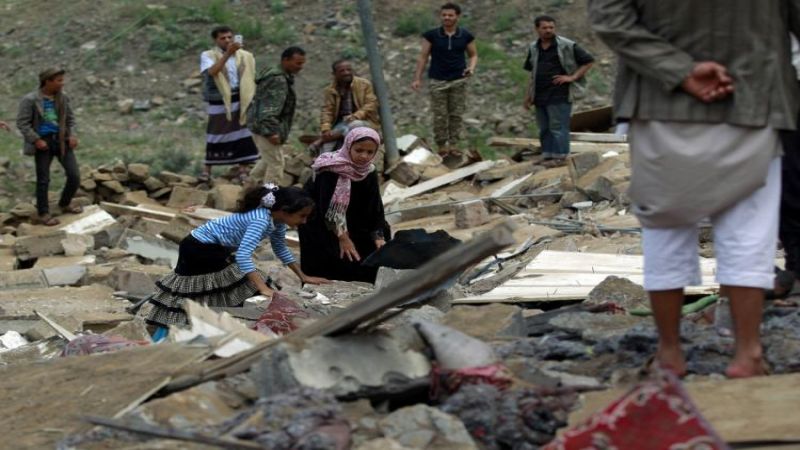
Local Editor
It is now three years since a Saudi-led coalition began conducting military operations in Yemen in an attempt to reinstate the country's resigned regime.
Thousands of people have died since the airstrikes began, but despite accusations of breaches of international law, the war shows no sign of coming to an end.
Fatima Mohammed, an aid worker for Save the Children based in the city of Sana’a, reflects on a night in which her family came close to becoming part of the growing death toll.
It was around 4am when I was awoken by the rumble of a plane and a rocket before the explosion. The light from the fire lit up my bedroom and the sound was deafening.
I tried to move but the house was still shaking and shards of glass from the window were flung over my body.
When the explosion subsided, I struggled out of my room and went to my mother's room.
I found her in the corner, hugging my seven-year-old sister and my fourteen-year-old brother. She was in shock as my siblings cried and clung on to her for dear life.
Without thinking I went into the garden to see what the damage was. I was surprised to find that I couldn't see anything other than smoke and dust. I couldn't even see the building next door. The smell was strong and suffocating.
It wasn't long before the rocket attacks began again, and each time the smoke and dust grew even thicker.
My ears were ringing and I heard an echo in my head. When the warplane approached and my family and I heard the sound of the rocket, we kept expecting the next bomb to fall on our house.
There was nowhere to hide.
This was the hardest part - it's as if we were waiting for death, and my little sister cried and clung to my mother. All this time, we didn't know where my father was or if he was safe.
Thankfully, my father returned from the mosque. He had an injured shoulder from debris falling on him during the airstrike. He ignored his injury and instead focused on trying to calm and reassure us.
The air raid was unrelenting. We decided to risk going outside during the bombing as my father thought my uncle's house would be safer.
Looking around, I could see that my neighbors were terrified, most of them were also forced to leave their homes during the airstrike to look for safety.
It was hard to find a way to reach my uncle's house. We had to walk for a long time to find a taxi, and we had to pay a lot more money for the fare.
It was dangerous, dark, and we were running for our lives.
Having left my father at home, we didn't know whether he was safe.
We waited at my uncle's house for hours. Then the airstrikes started again the following afternoon and still nothing.
I will never forget how difficult that day was. We weren't able to get in touch with my father until the following evening.
Fortunately, he was fine.
On that night more than five bombs rained down on a densely populated neighborhood in less than two hours.
The air raids did not stop. They continued the next day and the airstrikes were more severe than before. Many houses, including our own, were damaged.
Lots of the children in my neighborhood were injured by shrapnel and terrified by the experience. Families in the area were severely shocked and terrified by the force of the rocket fire falling on their homes and families.
Even after several months I'm scared of the sound of planes. I feel that I shudder from the inside. I'm haunted by that night.
Sadly, it is a common occurrence in Yemen.
There are on average 39 airstrikes every single day.
More than 8,530 people have been killed, more than half are civilians.
More than 50,000 people have been injured by airstrikes and fighting on the ground since the start of the war.
Source: News Agencies, Edited by Website Team